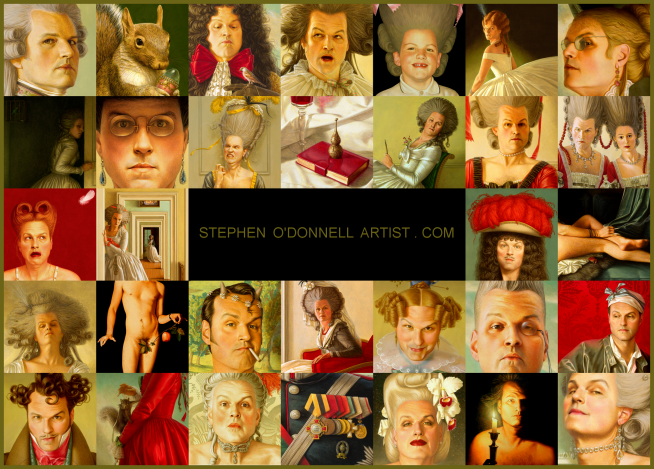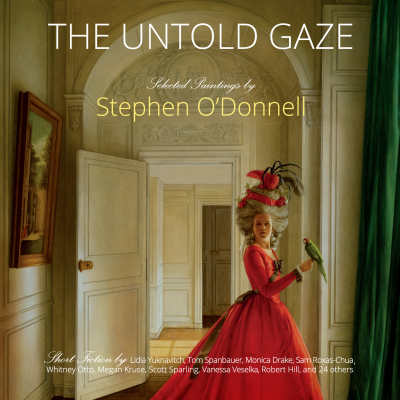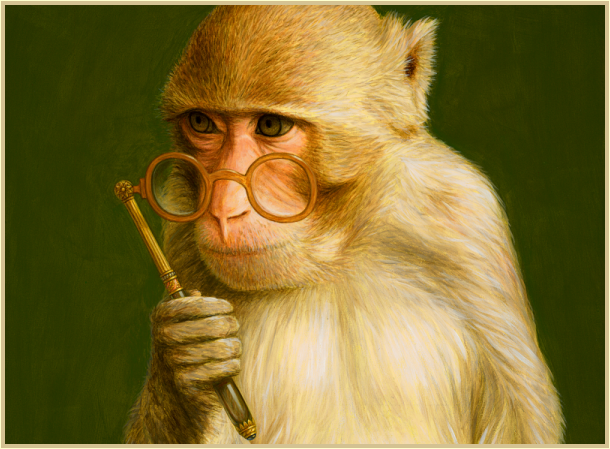Things are going pretty damned well for me right now in the art department, this career thing I've got going. I've got a new gallery - a really good one - in Seattle, and I've been asked to talk about my work at a symposium at the Tacoma Art Museum in April. Both of these things just dropped into my lap, and I couldn't be more flattered and grateful. For a while now, I've been working at my craft, doing good work but not really focused on anything else. Not thinking beyond the work to career. Treading water, really. But now, I feel like a door has been flung open and - to completely frappé my metaphors - I'm being asked to step up.
Step up.
The gallery in Seattle, Winston Wächter, has asked for new work for a show in January. One of the two I'm preparing is 36x24. Not really large by "industry standards", but larger than anything I've yet done as a professional artist. So large, that the little table-top easel I've always used just isn't able to accommodate it. I've had to acquire a real-deal floor-model easel. Large. With clamps and knobs and casters. Something that tilts and swings and gets locked into place. Solid wood and damned sturdy. In my whole life - from a small child - of making art, somehow I've never had a real, serious easel.
When I told Gigi that I was going to have to get one - in bed, getting ready to go to sleep - she quietly asked if I would let her buy it for me. Very touched, but knowing that it could cost several hundred dollars, I asked if maybe it would OK if she paid part of it. Contributed. But she said, just as quietly that, no, she wanted to buy it for me.
And just a few days later, she did. After we stuffed the huge box in the car - G actually had to assume the shape of a "G" in her half-folded-down seat to make it fit - after heaving it upstairs, and after yet another shuffling of the contents of the room we call the "studio", everything actually seems to fit. And I've started my big painting.
While not wanting to get too much into "our business", let me still say that G and I think and talk a lot about how we can support each other. As two very different people, with different expectations and needs - who love each other - we're always looking for ways to do that better. Just as people trying to grow and be more of who we want to be, are meant to be. And in all our many artistic endeavors. People need support in different ways. They need it delivered in different
styles, even. For myself, I need a good share of "tough love". And when it comes to making art, I'm so easily distracted, so emotionally fluctuating - so
squirrelly - that I often need a "stop, go sit down and get to work." And then, of course, I might argue the point. Because I'm rather a spoiled brat. (In case you didn't know that about me....) But, even if I do, I need it anyway. I need the support of someone telling me, "I don't care about your excuses, the art you want to make - need to make - is bigger than all that. Go get to work." I need some stern, to-the-point truth-telling.
So, this easel that Gigi bought me? This necessary gift? Could any metaphor for her support be clearer?! Solid, sturdy, serious. Large. Taller than I am and with a great capacity for expansion. To me it clearly symbolizes her belief in my talent and my goals, and her devotion to my dreaming and to my success. The way she supports me.
Et parce que ce soutien, je dis merci à toi, ma femme. Je t'adore.



